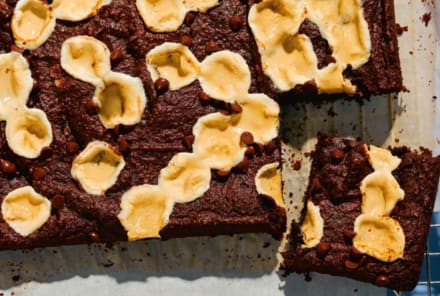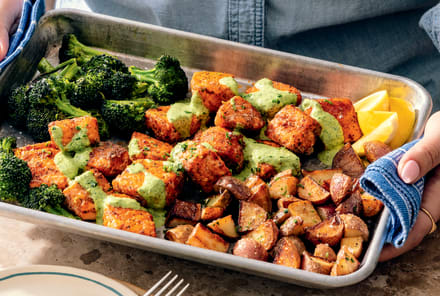Advertisement
Feeling SAD? 4 Essential Foods To Boost Your Mood

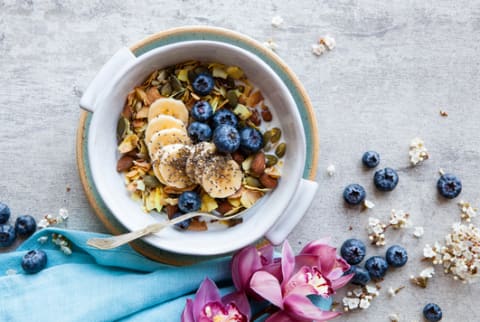
It's not news that we need food for energy and muscle repair. But what we might not realize is that certain foods can help to boost our memories, improve our moods, and provide protection against age-related cognitive diseases.
As any organ in our bodies requires nutrients for growth and maintenance, our brains are no exception. In fact, at rest our brains use somewhere between 20 and 30 percent of our energy intake, and even more when we're problem-solving. Makes sense that it can be difficult to concentrate when we skip meals, right?
We should, however, be smart about the foods we choose to fuel our brains, because when it comes to cognition, not all calories are created equal. Now sit tight for some literal food for thought.
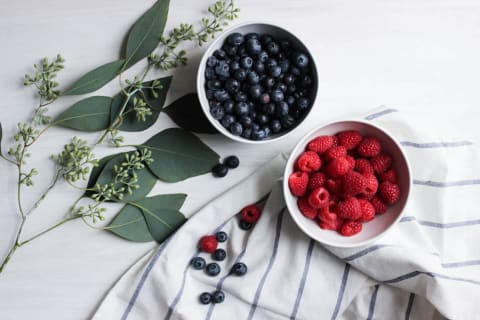
Dark berries
Think blueberries, blackberries, raspberries, acai berries, etc. These guys get their dark skin from a class of phytochemicals called anthocyanins, which are potent antioxidants. Remember, antioxidants are molecules found in foods that "scavenge" free radicals that otherwise cause cellular damage.
As you age, your cells inevitably become damaged by means of normal metabolic activity. Think about it like this: When you buy a new computer, it works smoothly at high speed. As you download more programs, leave windows open, and perhaps spill the occasional beverage on your keyboard (guilty), it slows down and becomes less efficient. Well, the same goes for your brain. Not to mention, your brain is particularly susceptible to oxidative injury thanks to its demanding metabolic rate.
This is why it is important to get those antioxidant foods into your diet—to combat cell damage and protect your neurons! Oh, and I'm talking a minimum of five ½-cup servings of fruits and vegetables per day.
Nuts
Walnuts, hazelnuts, almonds, cashews, etc. I'm going to piggyback off of the antioxidant concept discussed above for a moment. Nuts are a major source of vitamin E, also a potent antioxidant that according to research, presents promising agents for both prevention and treatment for Alzheimer's disease. Currently, 5.3 million Americans are living with Alzheimer's disease. Unless a cure is discovered, it is projected that more than 16 million Americans will have the disease by 2050.
Try making a doggy bag of homemade trail mix to bring to work with you and, if you want to go nuts, throw in some dark chocolate (at least 65 percent cacao) for an added boost of antioxidants.
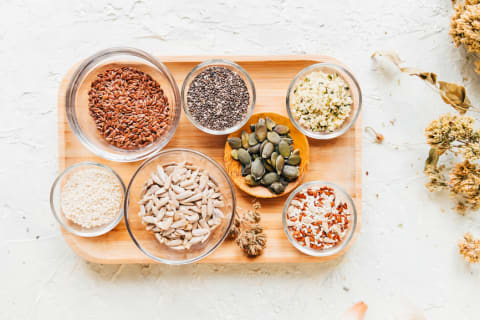
Hemp, flax & chia seeds
Have you ever wondered why drinking chia-infused beverages, adding flaxseeds to your morning oatmeal, or swapping cow's milk for hemp milk in your smoothie has become a trend? Well, there's a good reason—these seeds are rich in omega-3 fatty acids.
Why do we need omega-3s? They are an essential fatty acid (EFA), meaning our bodies cannot synthesize them and we must get them from our diets. EFAs are important for nervous system, vision, immune, and inflammatory function. A number of studies have shown that higher dietary intakes of omega-3s are associated with lower risk of dementia1 and slower age-related cognitive decline. Furthermore, our brains are made up of about 60 percent fat, so it is imperative that we consume EFAs to provide our brains with adequate reserves.
Leafy greens
As if you need another reason to include greens in your diet. Aside from the fiber and antioxidant content, green leafy vegetables like spinach and turnip greens are sources of B vitamins. These vitamins are major players when it comes to brain function, and in fact, low levels of B vitamins2 have been associated with learning and memory dysfunction. Other dietary sources of these guys include dried beans, peas, bell peppers, garlic, and bananas.
If you're thinking, "why not just take a supplement?" listen up. At Tovita Nutrition, we harp on eating whole, real foods. When you eat whole and natural foods, you benefit from the synergistic effect of the many vitamins, minerals, antioxidant compounds, and fiber, that are naturally present in the food, an advantage that cannot be identically replicated from taking a supplement. I'm not anti-supplement; I just simply believe that you benefit the most from your diet, and supplements should be used as a safety net, or to supplement your diet.
That being said, I leave you with one of my favorite, easy-to-make, brain-boosting salad recipes, which combines several of the above foods into a delicious and nutritious meal! Enjoy!
Tovita's Pomegranate Spinach Salad
Serves 2 to 3
Ingredients
- 1 (5-ounce) bag spinach leaves
- ¼ cup red onion, chopped
- ½ cup pecans, chopped
- 2 cups apples, diced
- 1 cup pomegranate seeds
- ¼ cup apple cider vinegar
- 1 tablespoon extra-virgin olive oil
Method
- Slice spinach to cut into smaller pieces. Add to salad bowl.
- Add red onions, pecans, and pomegranate seeds.
- To make dressing, combine apple cider vinegar and olive oil. Mix together and pour over salad. Enjoy!
Watch Next
Enjoy some of our favorite clips from classes
Enjoy some of our favorite clips from classes
What Is Meditation?
Mindfulness/Spirituality | Light Watkins
Box Breathing
Mindfulness/Spirituality | Gwen Dittmar
What Breathwork Can Address
Mindfulness/Spirituality | Gwen Dittmar
The 8 Limbs of Yoga - What is Asana?
Yoga | Caley Alyssa
Two Standing Postures to Open Up Tight Hips
Yoga | Caley Alyssa
How Plants Can Optimize Athletic Performance
Nutrition | Rich Roll
What to Eat Before a Workout
Nutrition | Rich Roll
How Ayurveda Helps Us Navigate Modern Life
Nutrition | Sahara Rose
Messages About Love & Relationships
Love & Relationships | Esther Perel
Love Languages
Love & Relationships | Esther Perel
What Is Meditation?
Box Breathing
What Breathwork Can Address
The 8 Limbs of Yoga - What is Asana?
Two Standing Postures to Open Up Tight Hips
How Plants Can Optimize Athletic Performance
What to Eat Before a Workout
How Ayurveda Helps Us Navigate Modern Life
Messages About Love & Relationships
Love Languages
Advertisement
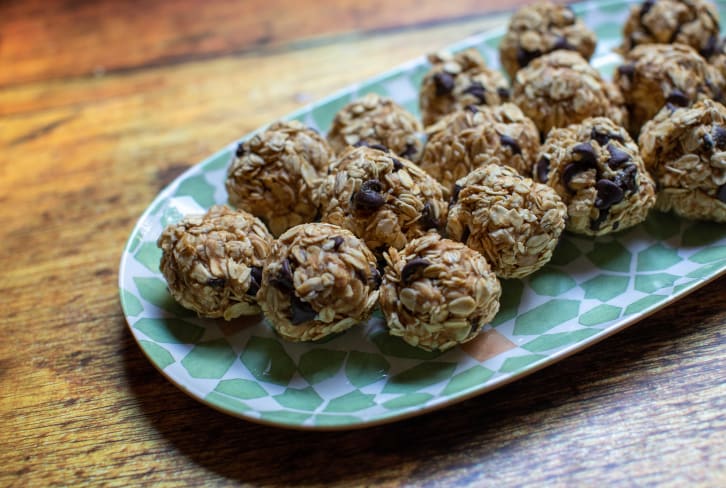
These Peanut Butter Cup Protein Bites Make The Perfect On-The-Go Snack
Molly Knudsen, M.S., RDN
